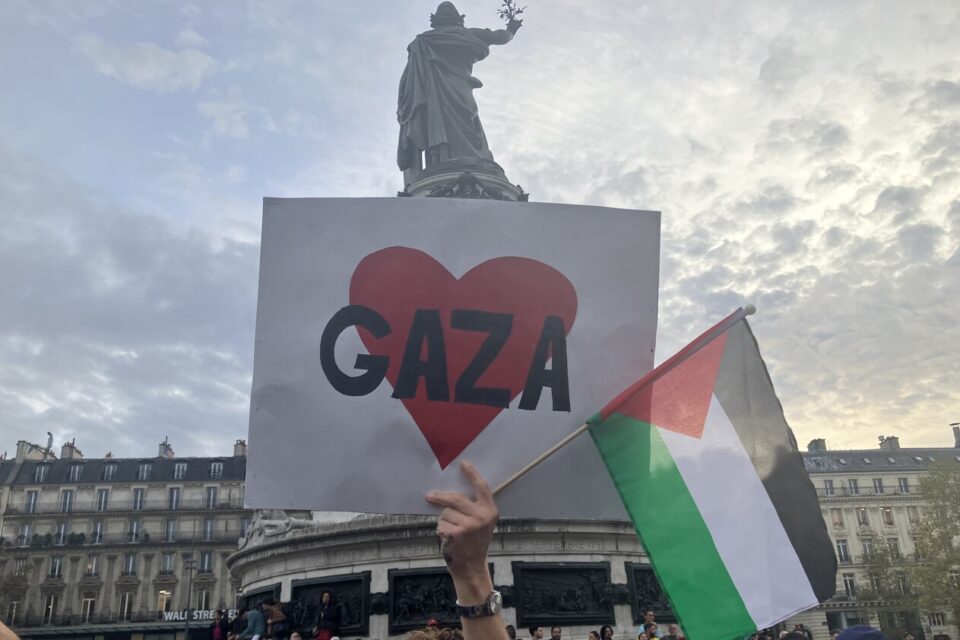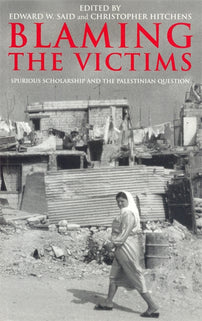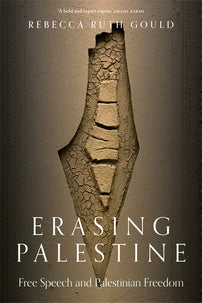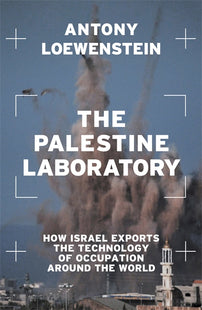On the war in Israel/Palestine
Michael Warschawski explains the historical context behind Israel's current siege in Gaza and the necessity of standing in solidarity with Palestinians.

This article was originally published by Siné Mensuel in November 2023.
As I write this column (17 October), the war between the state of Israel, Hamas and the people of the Gaza Strip is not yet over. The number of victims on both sides is frightening, and the risk of a second front on the Lebanese border is real. At this very moment (midday), the radio is once again calling on the inhabitants of a dozen localities to take shelter, following a new salvo of rockets. As in 1973, the ‘best intelligence services in the world’ saw nothing coming, but this time it is the civilian population that is paying the price. Egypt’s attempts at mediation have been turned down by the most incompetent government we have ever had.
Several of the newspapers I work with, including Siné Mensuel, have asked me to help them understand the wider context in which the latest events are taking place: how they came to be and what long history they are part of. So what I’m going to write about here is not current events, but more than a century of Israeli-Palestinian conflict.
How did we get here?
Although there have always been Jews in Palestine, until the beginning of the twentieth century, they were a small minority concentrated in Jerusalem, Hebron, Safed and Tiberias. The vast majority of the world’s Jews lived in Eastern Europe, most of them very poor, discriminated against and sometimes victims of pogroms. The creation of the Zionist movement at the end of the nineteenth century was part of the rise of colonialism: to find a place where these Jews (not those from the industrialised countries, who were in the process of integration/assimilation) could build a better life for themselves, under the protection of this or that imperialist power. But as the great historian Isaac Deutscher has written, the original ideology of refuge gave way to that of ‘return’ to the land of the ancestors.
Until the 1930s, Jewish immigrants were essentially young people who had come to work the land in a process of ‘regeneration of the diaspora Jew’: in order to be, at last, like all other peoples. A bit like the hippy communes in Lozère after May 1968.
It was the rise of Nazism that changed everything and enabled the Jewish community in Palestine to move on to modernisation: industrialists (with capital) and renowned intellectuals took refuge in Palestine, enabling the pioneering phase to be replaced by the creation of a modern society. With the fall of the Nazi regime, hundreds of thousands of refugees had nowhere to return: Yiddishland was decimated, but the rich countries didn’t want the survivors, and pushed them to emigrate to Palestine. They killed two birds with one stone: they resolved the Jewish question at the expense of the Palestinians – who thus became victims of the victims – and they gave themselves a ‘white’ ally in an Arab world that was in the process of awakening. This is how Israel allied itself with France and Great Britain in the Sinai war (1956) and then with the United States in its colonial wars in the Middle East. In exchange for economic, diplomatic and military support on all fronts, Israel became the ‘bridgehead of imperialism’ and the West’s ‘guard dog’.
Since the 1980s, Israel has become a regional and even a global power, both militarily and technologically, and in the face of Arab weakness it can shape the region to suit its interests – up to a certain point, as shown by the Lebanese fiasco in 1982-85, and the gigantic slap in the face it has just taken in recent weeks. Hubris, the intoxication of those who set no limits, is always bad advice, and often leads to smashing one’s head against a wall. Because, let’s not forget, the state of Israel and its 7 million Jewish inhabitants are at the heart of the Arab world and a billion Muslims; at a certain point the quantitative becomes qualitative. The repeated provocations of certain extreme right-wing leaders on the Holy Esplanade in Jerusalem could be the detonator of a civilisational conflict from which not even God will be able to save Israel.
‘It’s them or us,’ some ministers keep telling us, dreaming of a new war of ethnic cleansing (Naqba). ‘Don’t,’ President Biden is likely to say, since there is another player whose capacity for resistance Israel underestimates, or at least underestimated until a few weeks ago: the indigenous people of this country, the Palestinians. Admittedly, over the last few years, the balance of power has not been in their favour and their political leadership has struggled to define a liberation strategy, in a context where ‘normalisation with Israel’ has the wind in its sails among Arab leaders.
Hamas has set the record straight. This ability to get back on their feet – even if by unacceptable means – is what best characterises the Palestinians, wherever they may be. The Palestinians have a sense of dignity that is enviable, even – and perhaps especially – if it is expressed amid destitution and oppression, under an occupation that never ends.
The international solidarity that surrounds the Palestinian people, in the south as in the north, is their best ally. We must not let them down. More than ever, BDS (Boycott-Divestment-Sanctions)!
[book-strip index="1"]


